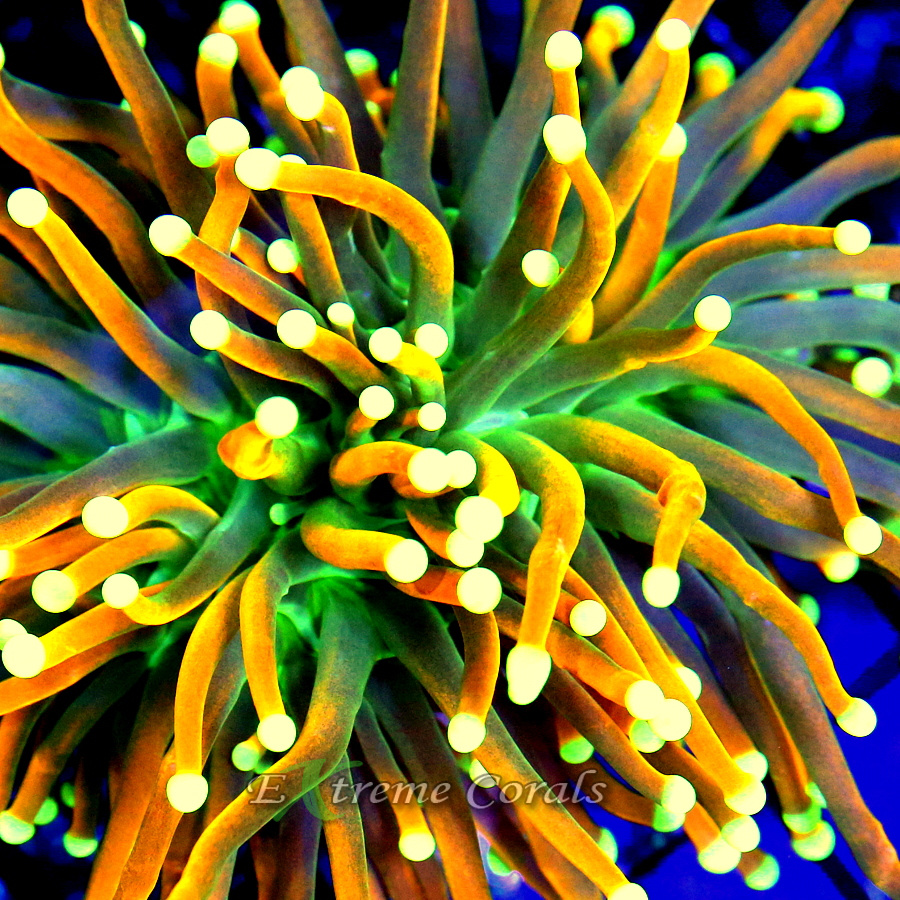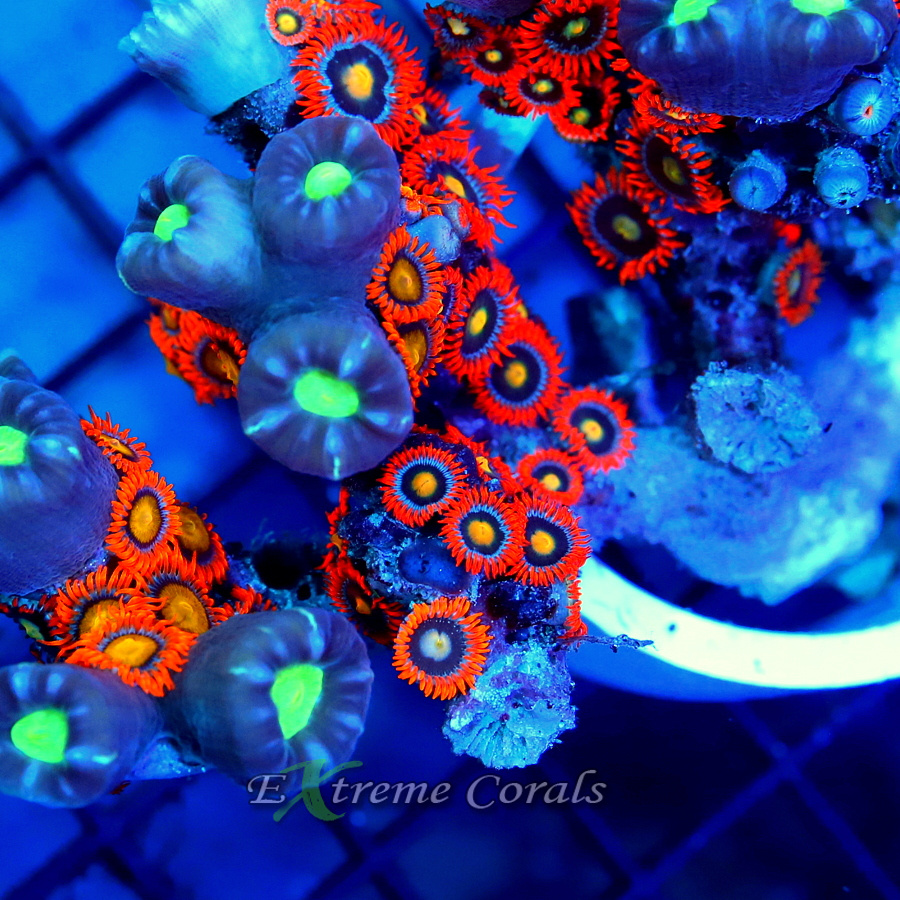Extreme Corals News and Updates
The Essential Care Tips for Sustaining Live Corals in Reef Tanks
Exploring Live Corals: Essential Reef Tank Insights
Dive into the world of live corals in reef tanks, mastering their care needs and contributions to your tank's ecosystem. From water quality management to lighting and placement, learn how to sustain vibrant corals for a thriving underwater environment.
by scott Shiles • March 01, 2024
Introduction to live corals in reef tanks
Live corals are a beautiful and essential part of reef tanks. They come in various shapes, sizes, and colors, adding vibrancy and life to your tank. It's important to understand the basics of live corals in reef tanks, including their care requirements and how they contribute to the overall health of your aquarium ecosystem.

Understanding the requirements of live corals
Live corals in reef tanks require specific conditions to thrive. They need adequate lighting, proper water flow, and stable water parameters to flourish. Providing the correct spectrum and intensity of light is essential for their photosynthesis and growth. Additionally, maintaining stable water parameters such as temperature, pH level, and nutrient levels is crucial to support the health of live corals. Proper water flow is also necessary to prevent sediment accumulation and ensure that the corals receive essential nutrients and oxygen. Understanding and meeting these requirements is essential for the successful sustenance of live corals in reef tanks.
Water quality and parameters for sustaining live corals
To sustain live corals in reef tanks, it is essential to maintain the water quality and parameters. Here are some key factors to consider:
- Corals require stable water conditions with consistent temperature, salinity, pH, and carbonate hardness.
- A high-quality water filtration system is necessary to remove waste and impurities that can negatively impact coral health.
- Regular testing of water parameters such as ammonia, nitrate, nitrite, and phosphate levels is crucial to ensure a healthy environment for corals.
- Adequate water flow and circulation within the tank are essential to prevent the buildup of debris and maintain oxygen levels for the corals.
Lighting and placement considerations for live corals
Placement and lighting are critical for the health of live corals in reef tanks. Here are a few key tips to consider:
- Placement: Ensure to place the corals in an area where they receive indirect light and minimal water movement. Avoid placing them too close to other corals to prevent overcrowding and competition for space and nutrients.
- Lighting: Use proper lighting fixtures that provide the right spectrum and intensity for the specific type of coral. Different corals may require varying levels of light, so it's essential to research their lighting needs before placing them in the tank.
Remember, the right placement and lighting will contribute to the vitality and growth of live corals in your reef tank.
Nutrient management for live corals
Nutrient management is crucial for the health of live corals in reef tanks. Excessive nutrients can lead to algae overgrowth, which can harm the corals. Here are some essential care tips:
- Regular water testing for nitrate and phosphate levels is important to ensure they are within the appropriate range for coral health.
- Implement a protein skimmer to help remove organic compounds and excess nutrients from the water.
- Utilize a well-maintained filtration system to ensure the water quality remains optimal for the corals.
- Consider using a nutrient export method such as a refugium or deep sand bed to help control nutrient levels in the tank.
By effectively managing the nutrients in your reef tank, you can create a healthy environment for your live corals to thrive.
Coral identification and selection
To properly care for live corals in your reef tank, it’s important to start with the right identification and selection of corals. Here are the essential care tips:
- Different types of corals require different care, so it’s vital to identify the specific species you have or want to purchase.
- Choose corals that are compatible with your tank’s water parameters and lighting conditions.
- Research the specific needs of each coral species to ensure that they have the best chance of thriving in your tank.
- Look for healthy corals with vibrant colors, fully extended polyps, and no signs of damage or disease.
- Purchasing from a reputable source can increase the likelihood of acquiring quality corals that will adapt well to your tank environment.
Coral feeding and supplementation
When it comes to sustaining live corals in reef tanks, it's important to understand coral feeding and supplementation. Live corals need proper nutrition to thrive in a reef tank environment. This includes feeding them with suitable food and providing necessary supplements to support their growth and health.
Common challenges in maintaining live corals
Maintaining live corals in reef tanks can come with its own set of challenges. Here are a few common issues that reef tank enthusiasts often face:
- Lighting: Providing the appropriate lighting for different types of corals can be tricky, as some require specific intensities, spectrums, and durations of light exposure.
- Water Chemistry: Maintaining stable water parameters such as salinity, pH, and nutrient levels is crucial for the health of live corals. Fluctuations in these parameters can stress or harm the corals.
- Pests and Predators: Dealing with pests like algae, parasites, and predatory organisms that can harm or kill live corals is a constant battle for reef tank owners.
- Coral Placement: Placing corals in the right location within the tank to ensure optimal water flow, light exposure, and space for growth can be challenging, especially when dealing with multiple coral species.
Disease management and prevention for live corals
To prevent diseases in live corals in your reef tank, it's crucial to maintain proper water quality and cleanliness in your tank. Here are some essential care tips to keep your corals healthy:
- Regularly test the water parameters such as temperature, salinity, pH, and nitrate levels to ensure they are within the appropriate range for your coral species.
- Quarantine new corals before introducing them into your main tank to prevent the spread of diseases.
- Ensure proper water flow and lighting conditions, as insufficient or excessive light and poor water circulation can weaken corals and make them more susceptible to diseases.
- Avoid overcrowding the tank, as this can lead to increased stress and competition among corals, making them more vulnerable to diseases.
- Keep an eye out for any signs of disease, such as tissue discoloration, lesions, or unusual growths, and promptly isolate and treat affected corals to prevent the spread of infection.
By following these disease management and prevention tips, you can help sustain the health and vitality of the live corals in your reef tank.
Conclusion and summary for live coral care
In conclusion, sustaining live corals in reef tanks requires attention to water quality, light, and proper feeding. Regular water testing and maintenance are essential to ensure the corals thrive. Adequate lighting, along with proper placement of corals, is crucial for their growth. Furthermore, providing the right nutrients and supplements ensures the health and longevity of live corals in reef tanks. Remember, the overall well-being of the tank’s inhabitants, including fish and invertebrates, contributes to the corals' success.
This blog has covered the fundamental care tips for maintaining live corals in reef tanks. By implementing these practices, you can create a vibrant and sustainable coral ecosystem in your tank, enhancing the beauty of your aquatic environment.

